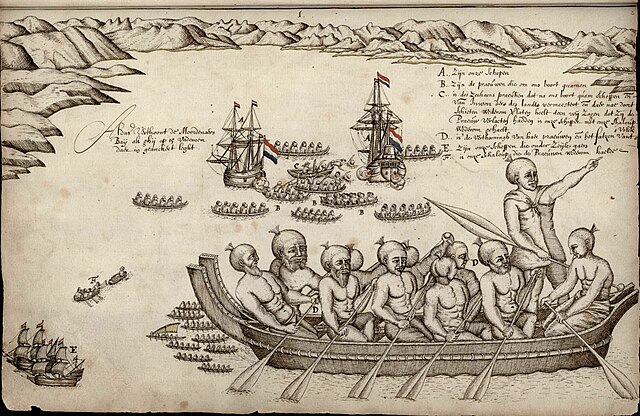Sir Āpirana Turupa Ngata was a prominent New Zealand statesman. He has often been described as the foremost Māori politician to have served in parliament in the mid-20th century, and is also known for his work in promoting and protecting Māori culture and language. His legacy is one of the most prominent of any New Zealand leader in the 20th century, and is commemorated by his depiction on the fifty dollar note.
Āpirana Ngata in 1934
Arihia Ngata, Ngata's first wife
Ngata c. 1905
Ngata and Te Rangi Hīroa alongside a tukutuku panel at Ngata's home, during an expedition by Elsdon Best, James Ingram McDonald and Johannes Andersen.
Māori are the indigenous Polynesian people of mainland New Zealand. Māori originated with settlers from East Polynesia, who arrived in New Zealand in several waves of canoe voyages between roughly 1320 and 1350. Over several centuries in isolation, these settlers developed their own distinctive culture, whose language, mythology, crafts, and performing arts evolved independently from those of other eastern Polynesian cultures. Some early Māori moved to the Chatham Islands, where their descendants became New Zealand's other indigenous Polynesian ethnic group, the Moriori.
Māori performing a haka (2012)
Early Archaic period objects from the Wairau Bar archaeological site, on display at the Canterbury Museum in Christchurch
Model of a pā (hillfort) built on a headland. Pā proliferated as competition and warfare increased among a growing population.
The first European impression of Māori, at Murderers' Bay in Abel Tasman's travel journal (1642)








